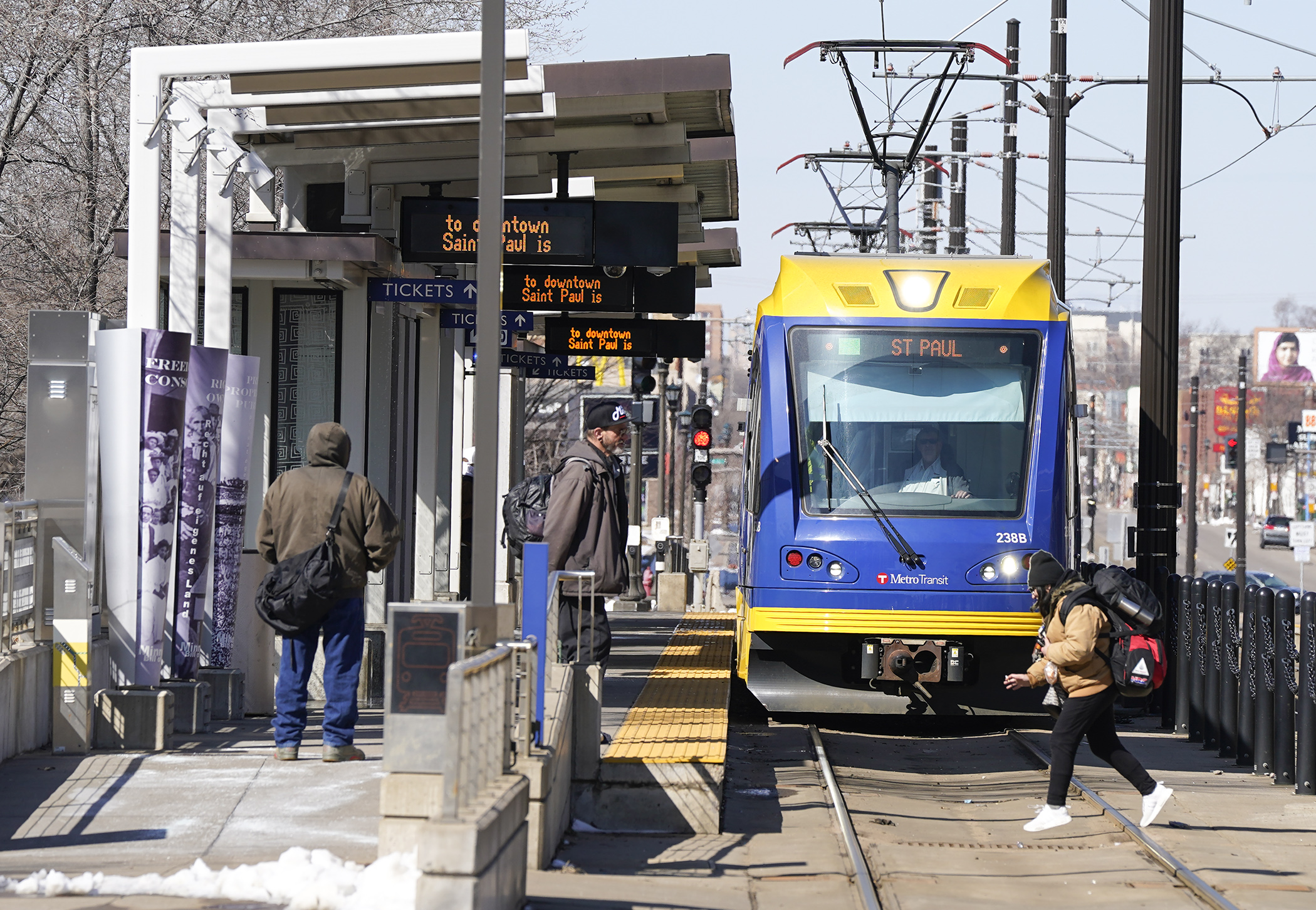As public safety concerns mount, lawmakers consider measures to put Metro Transit back on track

An elevator shaft used as a needle repository, open drug use on trains, deadly violence at stations – safety issues around Metro Transit have been well documented. And while most riders are unaffected by serious crimes, the system’s reputation, along with lesser issues like smoking and trash, make many choose alternatives.
Rep. Brad Tabke (DFL-Shakopee) has seen the issues first-hand when a crash on the first day of session made him a reluctant train passenger. Witnessing unlawful activity led him to one conclusion: “We have a massive, massive problem.”
To solve it, Tabke is proposing an intervention to reset what it means to be transit rider.
He sponsors HF2045, which would appropriate $1 million for a short-term, immediate intervention program on the light rail transit system. Additionally, the bill aims to promote a better rider experience long term.
As amended, the bipartisan bill was laid over Thursday by the House Transportation Finance and Policy Committee with action expected Tuesday.
The rider safety effort would start with a three-month, coordinated effort from social services to make sure people who need help get help, Tabke said. The transit system can be an attractive place for people facing homelessness or mental health issues.
The proposed legislation would also try to improve ridership with a riders’ code of conduct and version of transit ambassadors whose presence could help enforce rules without necessarily involving police. Some prohibited activities, such as playing a radio without headphones or eating on a train, would no longer be a misdemeanor.
“We’re trying to put things in buckets of ‘this is a dangerous thing’ and ‘this is an annoyance,’” Tabke said.
Ramsey County Commissioner Rena Moran and Hennepin County Commissioner Jeff Lunde both support the bill’s overarching goals, but are concerned about diverting county resources for the intervention project.
“We simply don’t have workers sitting idle,” Lunde said.
Metropolitan Council Chair Charlie Zelle said rider safety has long been a priority. Among the council’s efforts are putting more resources toward a law enforcement presence and real-time monitoring with cameras on trains and platforms. But it hasn’t been enough, he said, citing an assault that happened at the Lake Street station Monday.
Law enforcement was able to use security systems to apprehend the alleged perpetrators, but it was after the attack.
Workforce shortages also hamper security efforts, according to Zelle. The Met Council has authorized funding to hire about 60 more transit police officers, but those positions remain unfilled.
Related Articles
Search Session Daily
Advanced Search OptionsPriority Dailies
Legislative leaders set 2026 committee deadlines
By Lisa Kaczke Legislative leaders on Tuesday officially set the timeline for getting bills through the committee process during the upcoming 2026 session.
Here are the three deadlines for...
Legislative leaders on Tuesday officially set the timeline for getting bills through the committee process during the upcoming 2026 session.
Here are the three deadlines for...